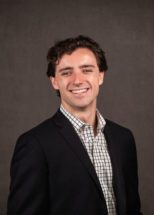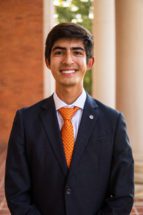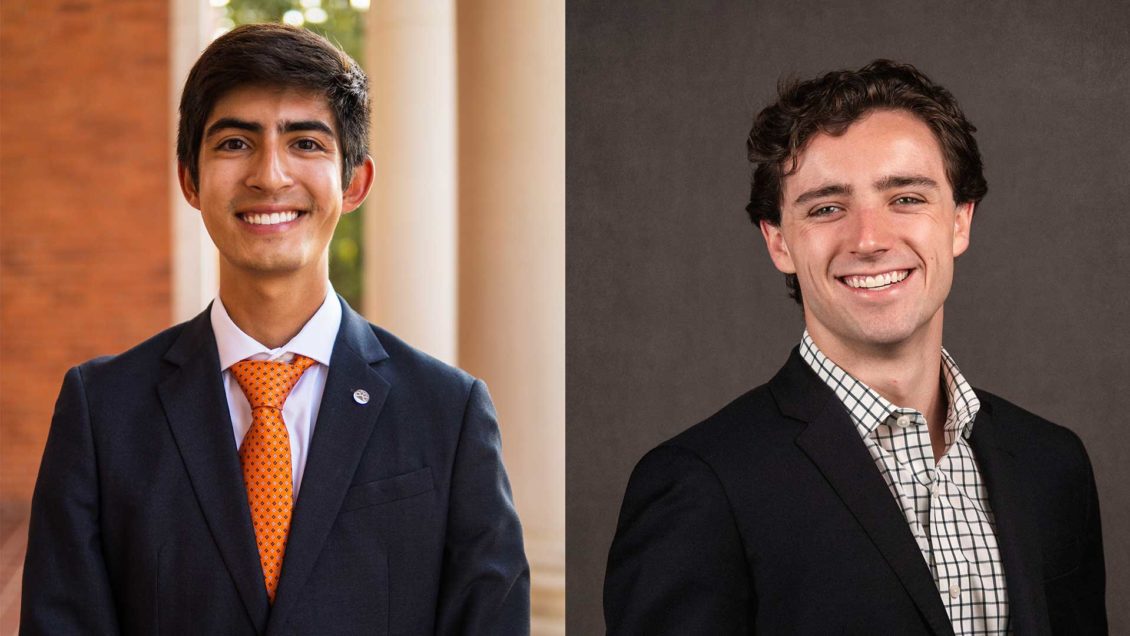Clemson University senior Gabe Cutter didn’t know he had won a prestigious Astronaut Scholarship until he received a text from fellow Clemson student and scholarship nominee Grant Wilkins. Unbeknownst to Cutter at the time, Wilkins had exciting news of his own.
“Grant was the first person to send me a text and to say congratulations, but he didn’t say anything about himself,” said Cutter. “I waited a little bit to respond and then received an email saying that Clemson and Berkeley were the only two universities to receive at-large scholarship awards from the foundation. It was the best-case scenario because I respect Grant so much.”
Astronaut Scholarships are awarded to a select number of college juniors and seniors who are studying STEM topics and intend to “pursue research or advance their field upon completion of their final degree,” according to the Astronaut Scholarship Foundation.
The foundation accepts applications only from universities that offer the country’s highest-rated programs in science, technology, engineering and math, while also providing graduate-level research opportunities to their undergraduate students. Typically, each partner university may nominate only two students and only one can be selected.
Cutter and Wilkins were among 68 undergraduate students from 45 universities and colleges across the United States who received the award in 2022.
The two students have a great deal in common. Both are Honors students (Wilkins is also a National Scholar) and both are double majors – Cutter in computer engineering and economics and Wilkins in computer engineering and mathematics. They each earned highly competitive Barry M. Goldwater Scholarships, though in different years – Cutter in 2021 and Wilkins in 2022. They have each already had their research published in peer-reviewed journals and share a major, though their research takes them in different directions.
Cutter, for example, focuses on radio frequencies used in everything from biomedicine and communications to electronics we wear on our wrists.

Wilkins, however, is focused on building smart grid technology that can keep our power on and running smoothly, even in a climate crisis.
Both are excited about the potential that the Astronaut Scholarship brings, both to their research and their standing in the larger scientific community.
“The Astronaut Scholarship is a great honor as it validates my hope to have a lifelong commitment to STEM and innovation,” said Wilkins. “Reading the names of people in support of and receiving the Astronaut Scholarship is humbling, and I am honored to be considered in such company.”
Wilkins added that the scholarship also feels like a charge to do more inside the realm of sustainable computing and to continue research that can better affect change and innovation. He started exploring smart grid technology after an internship at Tesla, which helped him see the possible impact it can have on clean energy and combatting climate change.
After he graduates, Wilkins plans to apply for a Ph.D. program in electrical engineering to continue his work.
Cutter is also focused on using his knowledge and abilities to serve. He sees being research-oriented and service-focused as going hand in hand.

His goal is to create non-invasive biological sensors that can detect specific illnesses, such as cancer. These devices also have potential applications in drug development and patient care.
Eventually, he plans to explore the biological mechanism behind radio frequencies and their reputed adverse effects on people, and to verify whether those effects exist. He will continue this work in graduate school, which he sees leading him to the study of electromagnetics.
He was drawn to the Astronaut Scholarship’s focus on making the world a better place.
“The main reason I applied for the Astronaut Scholarship was that there is a big emphasis on commitment to service, with recipients being people who are going to make wholly good contributions to the world,” said Cutter. “That’s something I want to be part of too.”
Cutter and Wilkins are also active in the campus community. Cutter has served as Clemson Undergraduate Student Body Treasurer, student government chief of operations and founded a movement of students advocating for a tuition freeze for the 2021-22 academic year, while also working as an active member of the Clemson Queer Students of Color Association. In addition, he plays the trumpet for the Clemson University Tiger Band.
Wilkins belongs to several Honors societies and leads the student alumni council that organizes the University’s ring ceremony each year. He also leads a retreat team focused on introducing incoming National Scholars to campus each year and plans student-focused fundraisers through the Blue Key Honor Society.
Students interested in the Astronaut Scholarship or other nationally competitive programs should contact the Office of Major Fellowships at 864-656-9704 or fellowships@clemson.edu.
Get in touch and we will connect you with the author or another expert.
Or email us at news@clemson.edu

